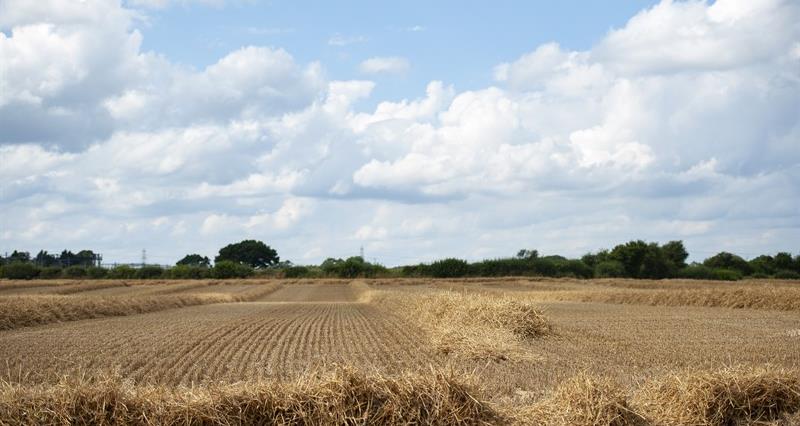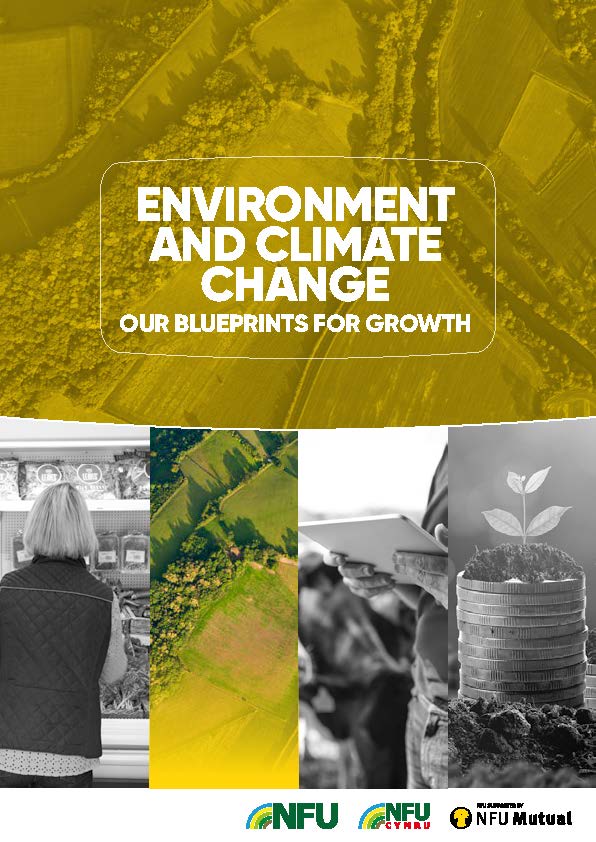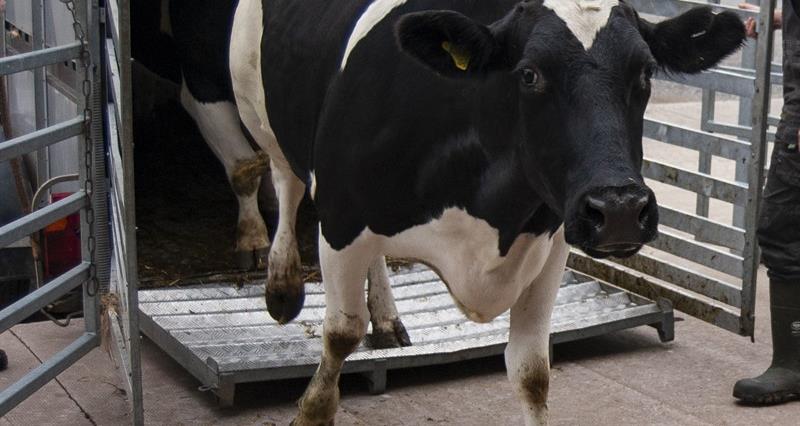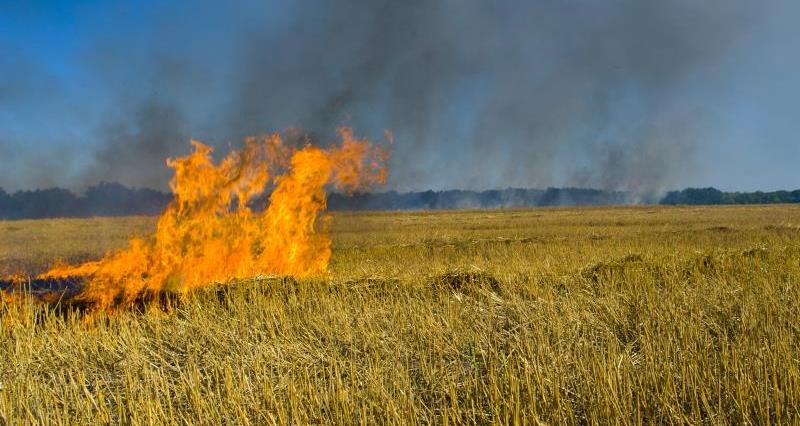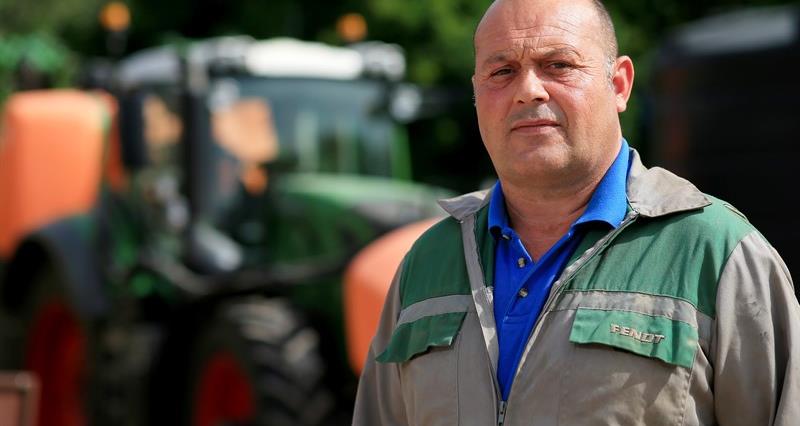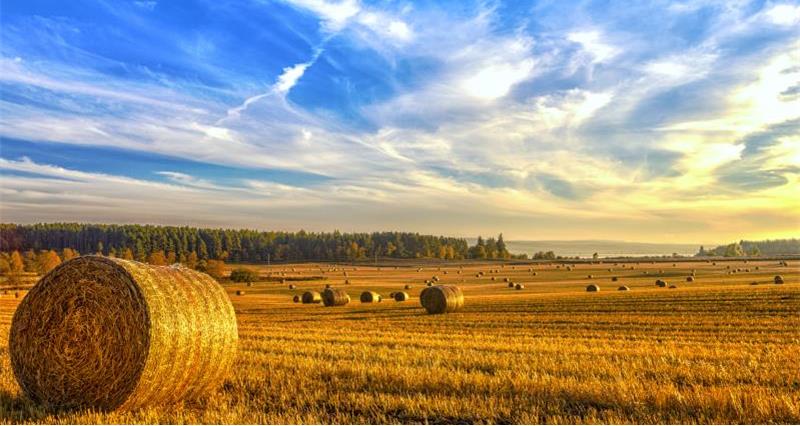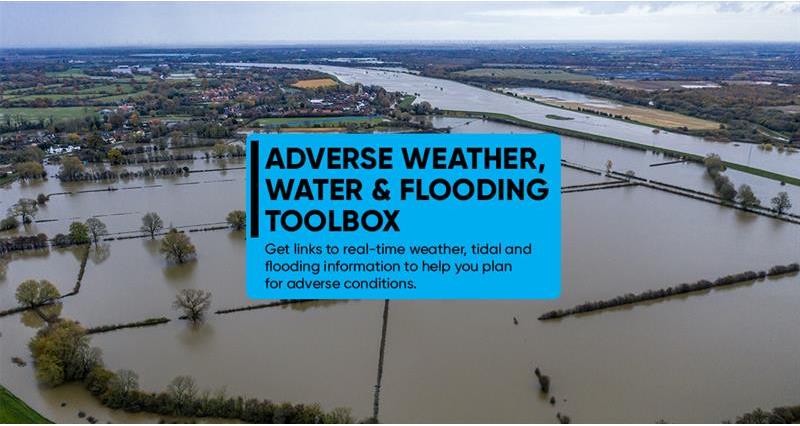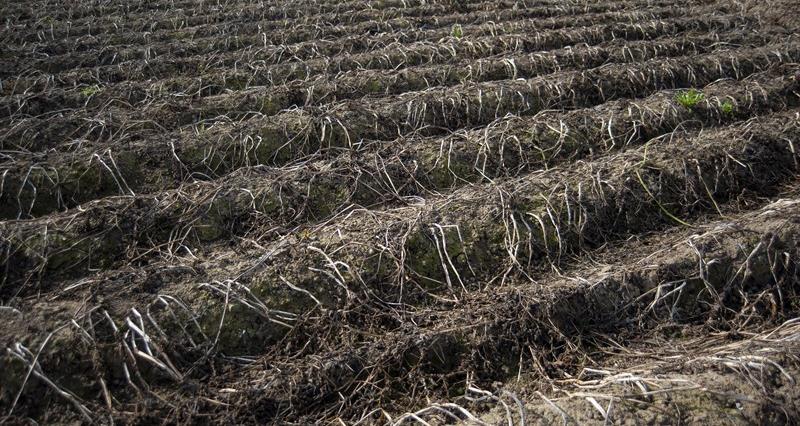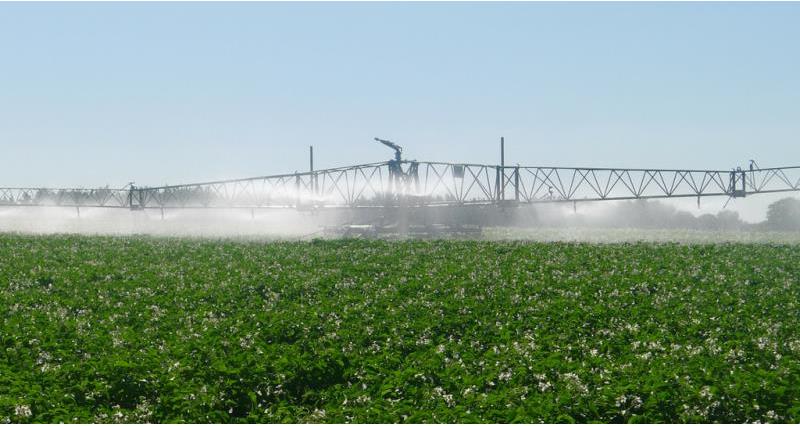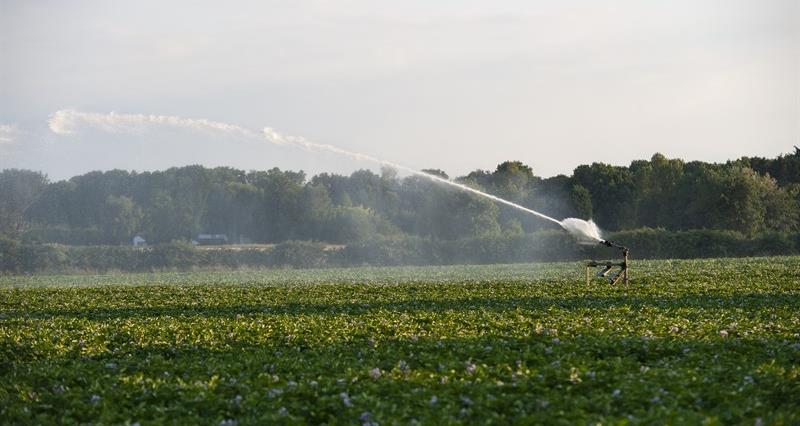Latest news
We have seen the driest spring since 1956 and the outlook for the summer is uncertain if it will remain dry or turn wet.
Given the extreme wet weather last year, groundwater levels remain high and where rivers are supported by groundwater and where there are boreholes in significant aquifers, the access to water is likely to remain good for irrigators. The situation is more challenging in rain dependent areas with impacts on grass growth and non-irrigated arable areas.
The EA has downgraded the irrigation prospects from good, to moderate to good, with particular concern for northern areas and parts of the midlands.
Water sources for irrigation remain mostly well stocked, but dry periods where abstraction sources respond rapidly to climatic conditions can see hands-off-flow restrictions applied for localised areas.
For the latest information on rainfall see the Environment Agency monthly reports. The Farming Advisory Service also produces regular reports on irrigation prospects.
Forage Aid
The Addington Fund/Forage Aid would encourage farmers who anticipate a shortfall in fodder or bedding to consider supplementary feeding of store stock now. This proactive step could help reduce pressure over the winter period.
They said: "We have known hay and silage to be made in late autumn which could turn around the current potential shortage of fodder we are facing.
"However, if a farm is shut down and unable to move stock off the farm, and unable to trade, we may be able to provide short-term support through the supply of animal feed or fodder through our Forage Aid Fund."
More information on the fund can be found at: Addington Fund | Emergency Relief.
Extreme weather impacts on agri-environment schemes
If you are in an agri-environment scheme that you will struggle to deliver due to dry weather, or you wish to manage differently, you need to contact RPA as soon as possible on ruralpayments@defra.gov.uk or call 03000 200 301. The RPA will advise on the best way forward eg, a minor or temporary change to an agreement.
Depending on the scheme, the process to follow is slightly different. For SFI agreements you should use the change of circumstance process. For Countryside Stewardship or HLS agreements then you need to request a Minor and Temporary Amend.
The RPA will deal with requests on a case-by-case basis. Please note that adjustments to agreements could lead to agreement values being amended. More details on both processes can be found at: GOV.UK | Extreme weather guidance for farmers and land managers.
In 2024, the RPA introduced temporary adjustments to more than 40 agri-environment scheme options which may have been impacted by the wet spring and winter. The NFU has asked the RPA, should it remain dry, whether a similar approach is needed this year.
Drought and water resources
The Environment Agency has produced a summary document ‘Drought and water resources’ which contains useful links and information; you can find it at: GOV.UK | Creating a better place.
Advice for irrigators
Water efficiency is crucial when water is in short supply. Working with the UK Irrigation Association we are recommending irrigators follow the pathway to efficiency:
- Check your irrigation system is in good order. This means regular checks on operating pressure, water use, and uniformity. Remember, pressure is king. Operating at the recommended pressure at the sprinkler or rain gun is key to getting a good uniform and efficient irrigation.
- Manage (schedule) water applications according to crop water requirements using a mix of both subjective and more scientific scheduling methods. Use soil moisture probes and information from local weather stations.
- Consider irrigating at night. Most benefit comes from reduced windspeeds at night enabling more uniform water applications. There are some water savings because of reduced evapotranspiration but they are not significant. Research indicates up to 1-2mm saving on each application.
- Follow ‘best irrigation practice’. Know your soils and crop responses to water. Operate systems according to the design, monitor all aspects of each irrigation event, use objective monitoring tools to schedule irrigation, use more than one method to schedule irrigation, remain open to new information and methods
- Work with neighbouring irrigators to share available water resources. For those using direct abstraction, be aware of others abstracting upstream. Cooperate with neighbours to stagger abstractions to avoid everyone abstracting at the same time.
Our policy asks on water
Managing water resources
As recent experience has shown, agriculture is particularly vulnerable to climate change and severe weather events. Incidents of flooding followed by periods of drought are becoming increasingly commonplace and, with experts predicting longer and more severe droughts interspersed with more frequent intense rainfall events, it is vital we act now to safeguard our nation’s food security, environment and livelihoods.
Our asks:
- Access to water for livestock and crop production in times of shortages to be secured through planning policies that support on-farm water storage, investment in water-use efficiency on farm, and innovation in more water efficient crops and farming systems.
- The value of access to water to be recognised in any future food strategy.
- Government to provide support for agricultural water resource planning, to ensure fair access to water alongside public water supply and other sectors in regional water resource planning groups.
- The Environment Agency to commit to timely communication and engagement with abstraction licence holders as they pursue abstraction reform programmes, and to demonstrate a transparent and fair process for any changes proposed.
Managing water at infrastructure level
The NFU’s interest in infrastructure is broad.
Agriculture is impacted by new road, rail and utilities infrastructure, which takes land out of production, and increasingly public building projects are looking for additional land as part of their environmental mitigation obligations.
We're calling for the government to demonstrate leadership in developing a framework for managing water, ensuring food production and water for animal welfare as an ‘essential water need’.
We need this to ensure farmers and growers have access to the water they require to rise to the challenge of feeding a growing population, which was recently set out in the government's food strategy.
"We have to keep water flowing in extreme circumstances, prioritising hospitals and parts of industry and farming."
National Infrastructure Commission chair Sir John Armitt
In addition, the Defra plan for water commits to ‘at a minimum, maintain the current level of food we produce domestically’ and it states that water ‘is vital for food security’.
Following up commitments made at the 2023 Farm to Fork summit the government has the government has committed £1.6 million to help farmers manage water resources. The NFU has followed up these conversations at the 2024 summit and will continue to do so with the new administration.
Our integrated water management report states cooperation and collaboration within the farming community, and with other sectors such as water companies, will be vital in our response to managing extremes and in improving the quality of our water.
Water supply for farming
We cannot and should not be complacent about our ability to produce food.
The NFU's participation in the NDG (National Drought Group) brings us together with governments and their agencies, water companies, the energy sector and environmental NGOs to discuss the concerns in an integrated forum. In addition, the NFU co-chairs the National Drought Group sub-group for Agriculture and the Environment.
The NFU meets regularly as part of the NDG which includes organisations such as the Environment Agency, Natural England, public water companies, the Met Office, Ofwat, and Water UK, as well as government departments including Defra and the Cabinet Office.
The NDG provides a cross-sector strategic steer to the management of drought events in England and Wales. The group works constructively and collaboratively during times of significant water scarcity to minimise the impacts on people, economy, industry and the environment through strategic co-ordination, innovation and evidence-based outcomes that strengthen existing drought plans and drive behaviour change.
The sub-group of the Environment and Agriculture/Land Management sectors contribute to a common understanding across their respective sectors, sharing and receiving the most up-to-date picture to identify short- and medium-term needs to overcome impacts. The NFU chairs this working group on an alternate basis with Angling Trust/Blueprint for Water.
We are keen to promote policies that link food security to water security, and policies that recognise water as an essential element of food production.
Further information can be found below:
- Download and read our previous report: Learning lessons from the 2018 agricultural drought.
Read the latest National Drought Group update.
- Anglian Water have produced a ‘Water regulations for agricultural premises guidance’. Please refer to this document for further information.
What to do if you're experiencing water supply issues
It is essential to have a plan in place for if your farm loses access to water.
Extreme weather and temperature changes can make your farm vulnerable to water supply interruptions.
With threats such as freeze-thaw, droughts and heatwaves being key factors in water supply disruptions, it's important to stay one step ahead.
This is particularly the case if you farm livestock. For instance, lactating cows need between 60 and 100 litres of water per day, while lactating sows and gilts may require 15 to 30 litres per day.
We've put together a guide in partnership with the AHDB and Water UK, which provides useful advice and explains the support you can expect from your supplier.
Visit the AHDB website to read it: AHDB | Water supply problems? A guide for livestock farms.
There is also guidance from the RPA on extreme weather events for farmers and land managers: GOV.UK | Extreme heat advice for farmers and land managers.
Further information is provided by the Drinking Water Inspectorate at: GOV.UK | Private water supplies.
Abstraction licences
If you have a licence to abstract water, download our NFU guidance on EA abstraction licences briefing, which provides more information on:
- Drought planning, legislation and triggers, and the responsibilities of the relevant authorities.
- EA drought management stages and actions.
- Spray irrigation restrictions.
- Drought orders, procedures and objections.
Abstraction licensing flexibility
Abstraction is primarily controlled by conditions on licences. Licence holders must ensure that they adhere to these at all times.
The NFU encourages all abstractors to regularly review their licences to ensure that they continue to meet their needs for long term resilience.
During an extended dry weather period, the NFU is encouraging abstractors to review their needs individually and collaboratively. Where there are a number of abstractors within one water body, an EA local enforcement position may be able to authorise the aggregated sharing of licence volume, provided that there is no impact on other abstractors or the environment.
This is a temporary position and would be reviewed on a case-by-case basis, by request to the Environment Agency. There is no guarantee this would be available.
The EA has powers to restrict the abstraction of water for irrigation from rivers, streams and underground sources, and will use those powers should the situation become critical.
If such a situation arises, however, the EA will always seek to achieve as much as possible through voluntary savings before imposing formal restrictions. Total irrigation bans will only be used as a last resort.
During dry weather events, we work closely with the EA on its ‘flexible abstraction’ position which can change as circumstances change. This includes securing water for the current season but also, water for winter storage reservoir fill, ready for next season.
We advise members with abstraction licences to carefully consider the management of their licence – especially where the licence is held by the landowner and the irrigation licence is used by a contract crop grower for example.
If you are concerned about water availability, the advice is to contact your EA local area representative. You can find contact details for your local area here: EA dry weather contacts.
Examples of evidence to support requests
If you are looking at options such as trading abstraction licence unused volumes, the EA requires evidence to support your request. This evidence could include:
- That it is required for a period of less than eight weeks.
- Demonstrating the need for the water was above the planned forecast.
- The need for the additional water was not a result of speculative decision making where water requirements were not properly factored into cropping needs.
For repeat requests, evidence could also include:
- You have applied for an abstraction licence which has not yet been determined.
- You are already actively engaged with National Permitting Services in pre-application discussions.
- There is other evidence that a strategic solution is being put in place (e.g. applications for planning permission for a storage reservoir, or draft commercial arrangements with other abstractors to share water).
Each case will be assessed individually by the EA with regard to the local water availability situation. The EA has a legal obligation not to allow deterioration (environmental damage).
Further guidance
- You can find the latest position on flexible abstraction here: GOV.UK | Water abstraction during prolonged dry weather and drought
- More detailed hydrological information can be found in the EA’s weekly and monthly water situation reports: GOV.UK | Water situation reports for England
- Information on weather forecasting is available from the Met Office as well as the UK Centre of Ecology and Hydrology.
- Abstraction licence holders can start receiving water abstraction e-alerts by giving their email address to their local Environment Agency contact. You can find contact details for your local area here: EA dry weather contacts.
Dry weather and supply contracts
Many supply contracts contain clauses which seek to deal with situations where particular events occur which are outside the control of the parties. These are most commonly referred to as ‘force majeure’ clauses.
Our legal team has created a briefing providing general guidance on some key contractual principles which may be relevant.
Read our guide on extreme weather and supply contracts – are you covered?
AHDB impact assessment and resources
There is a lot of useful information on the AHDB website.
On the pages below you'll find cross-sector analysis of the potential market impact of this weather as well as advice on planning for and coping with weather events of all kinds.
- AHDB | Knowledge Library | Drought
- AHDB | Knowledge Library | Weather
- AHDB | Water supply problems? A guide for livestock farms
The latest grass growth and quality figures can be found on AHDB's interactive Forage for Knowledge dashboard, along with the latest updates and resources.
You can also sign up to receive weekly Forage for Knowledge newsletters at the AHDB's Keeping in touch web page.
UK Water Resources Portal
Developed by the UK Centre for Ecology & Hydrology, the UK Water Resources Portal is a web-based tool bringing together a wealth of information on the latest hydrological situation across the UK.
It is useful for farmers and growers because it can help you to monitor and understand the current state of water resources in your local area, as well as at the regional and national scale.
The portal provides the most up-to-date available data on river flows, rainfall, soil moisture and groundwater levels from a local to a national scale, with users able to view measurements in any part of the country by clicking on an interactive map.
In addition to providing an indication of current water resources status, and early warning of potential drought or flood conditions, it also has historical records that enable comparisons to be made with long-term averages and previous significant events from the past 50 years.
